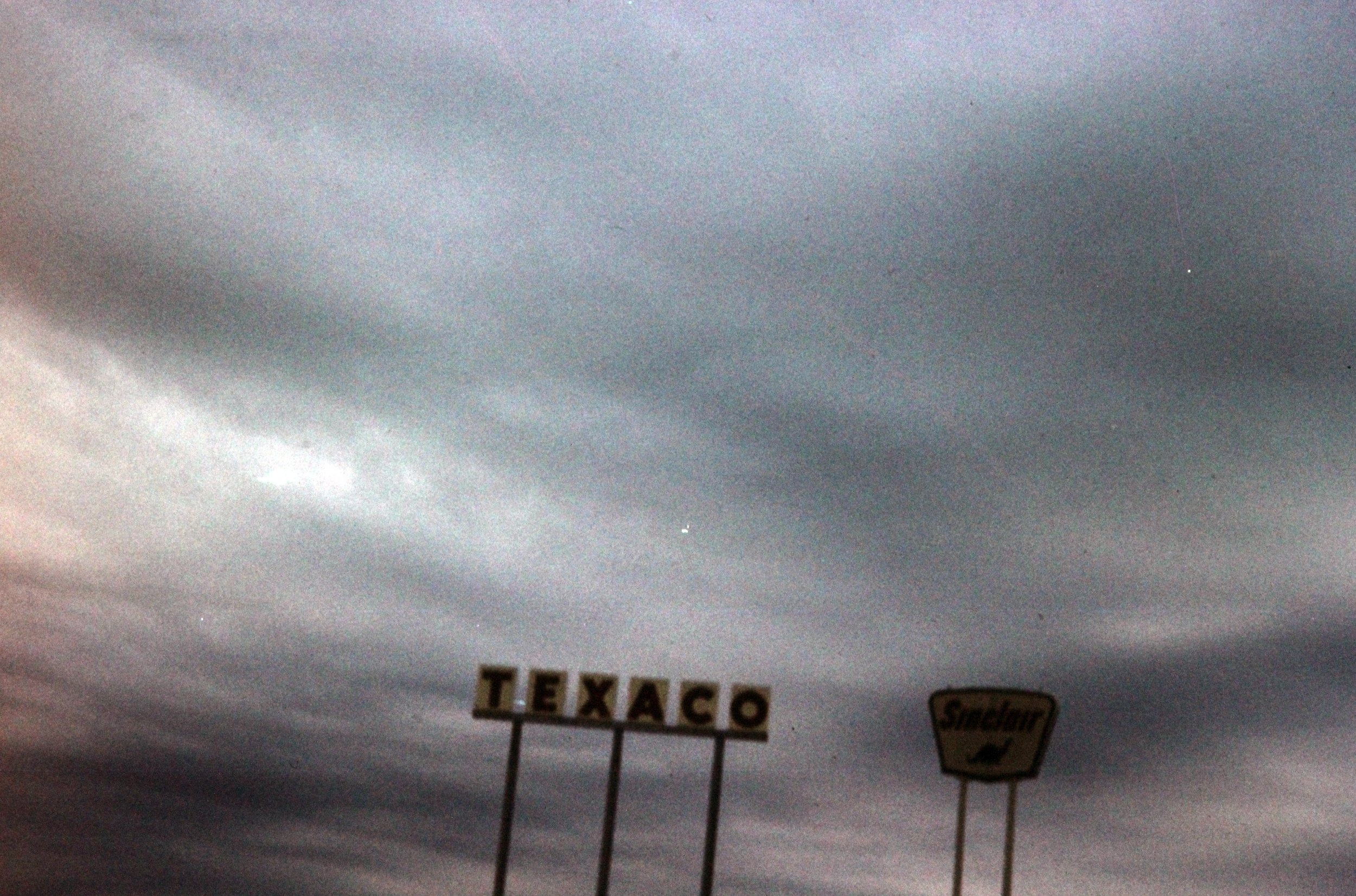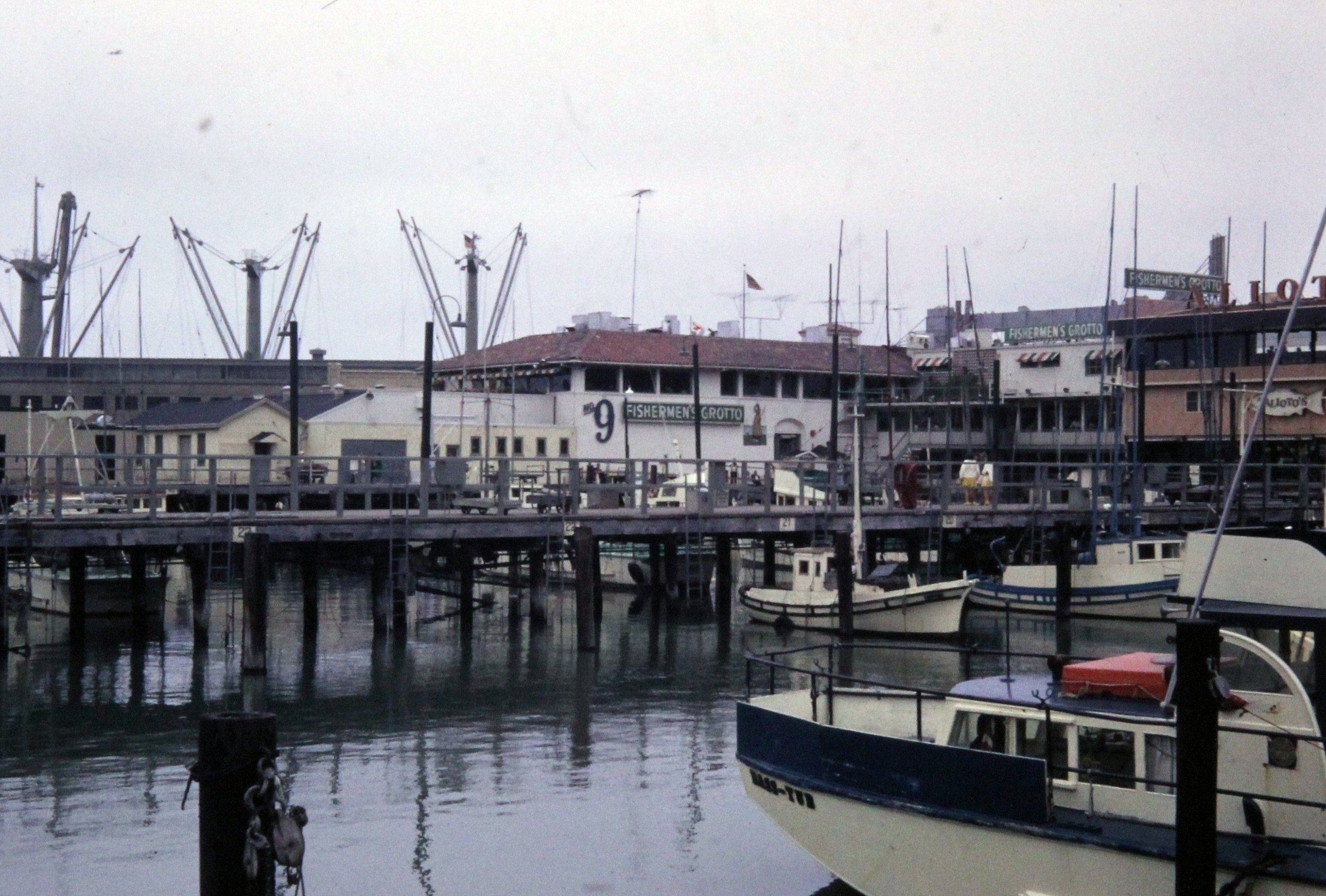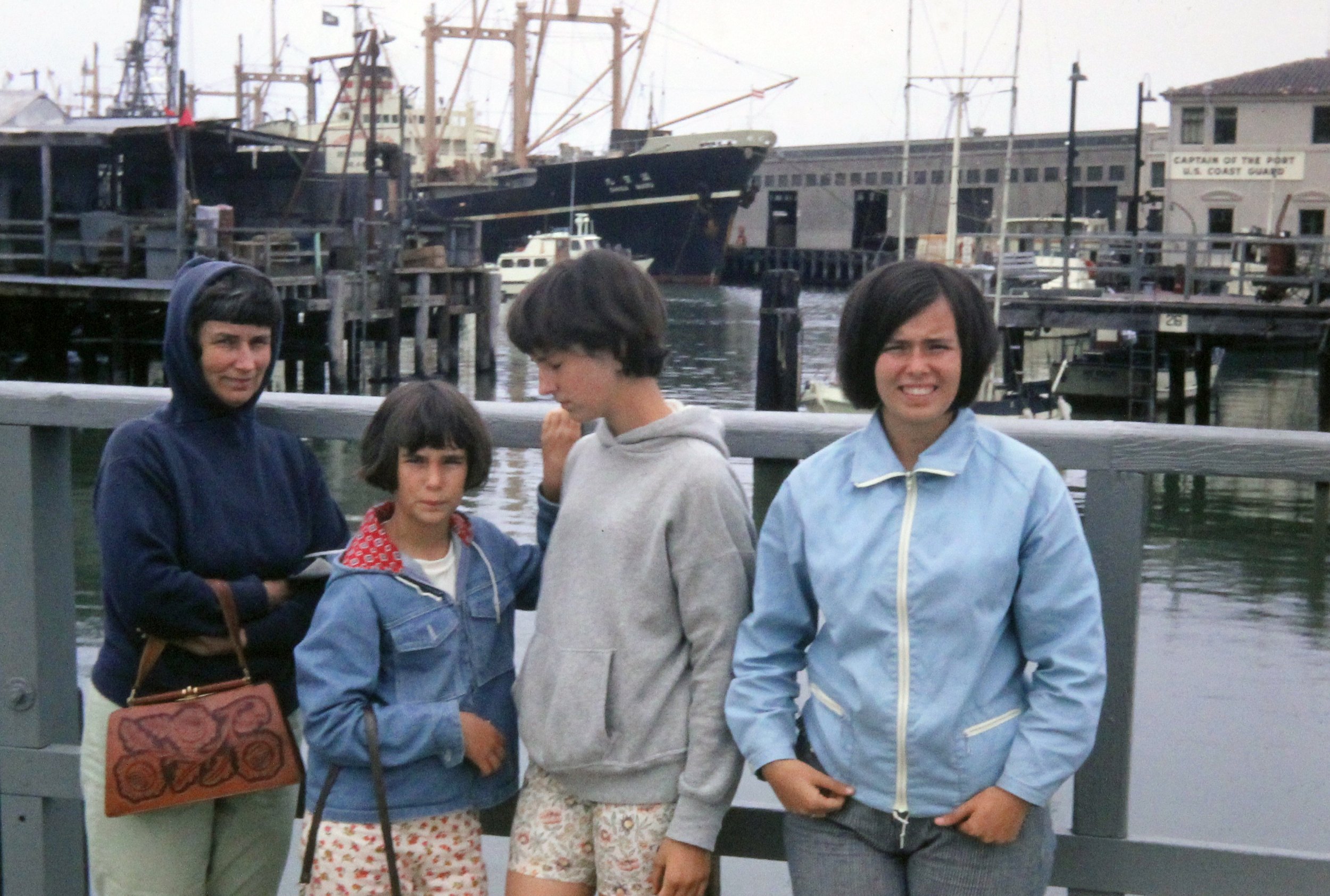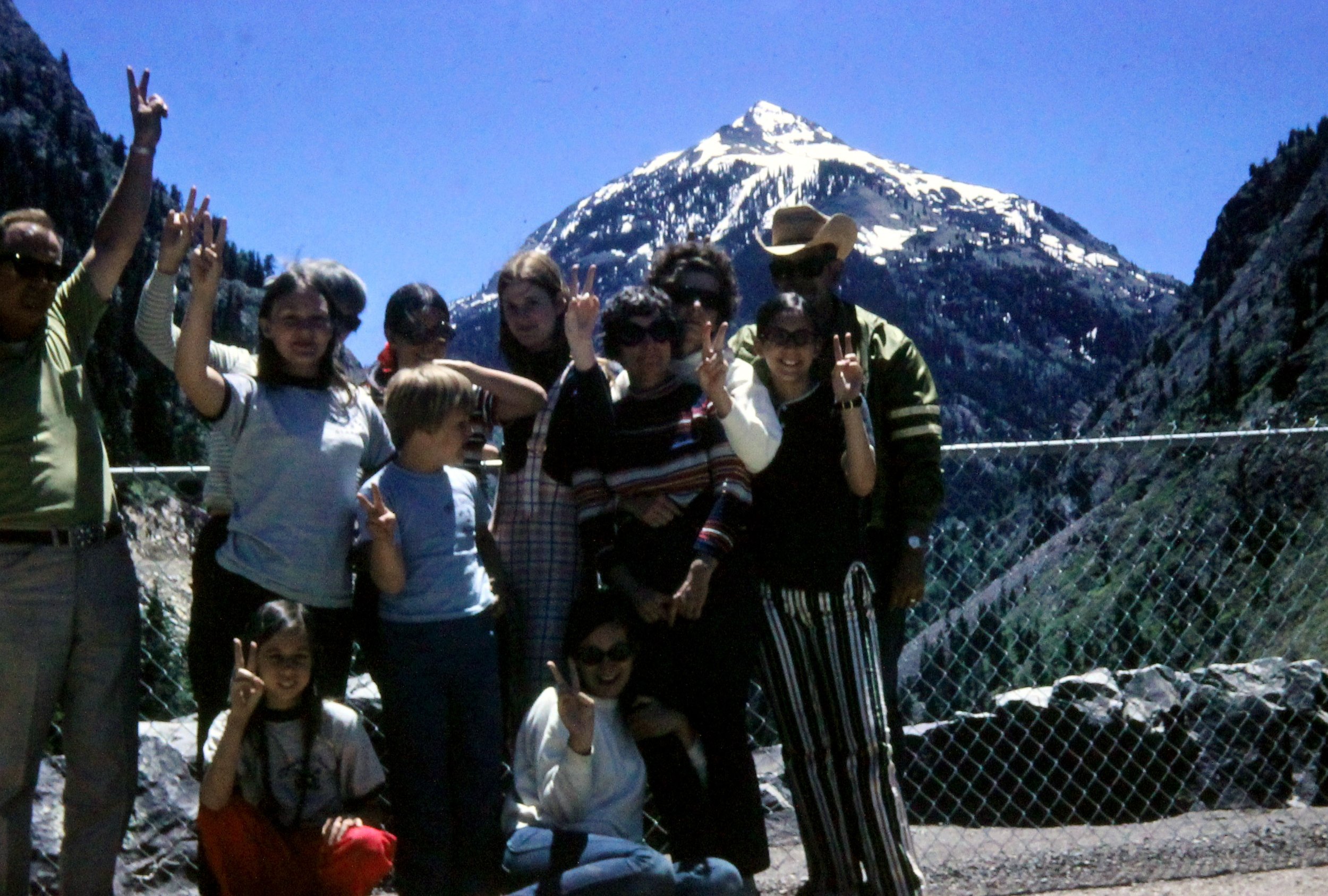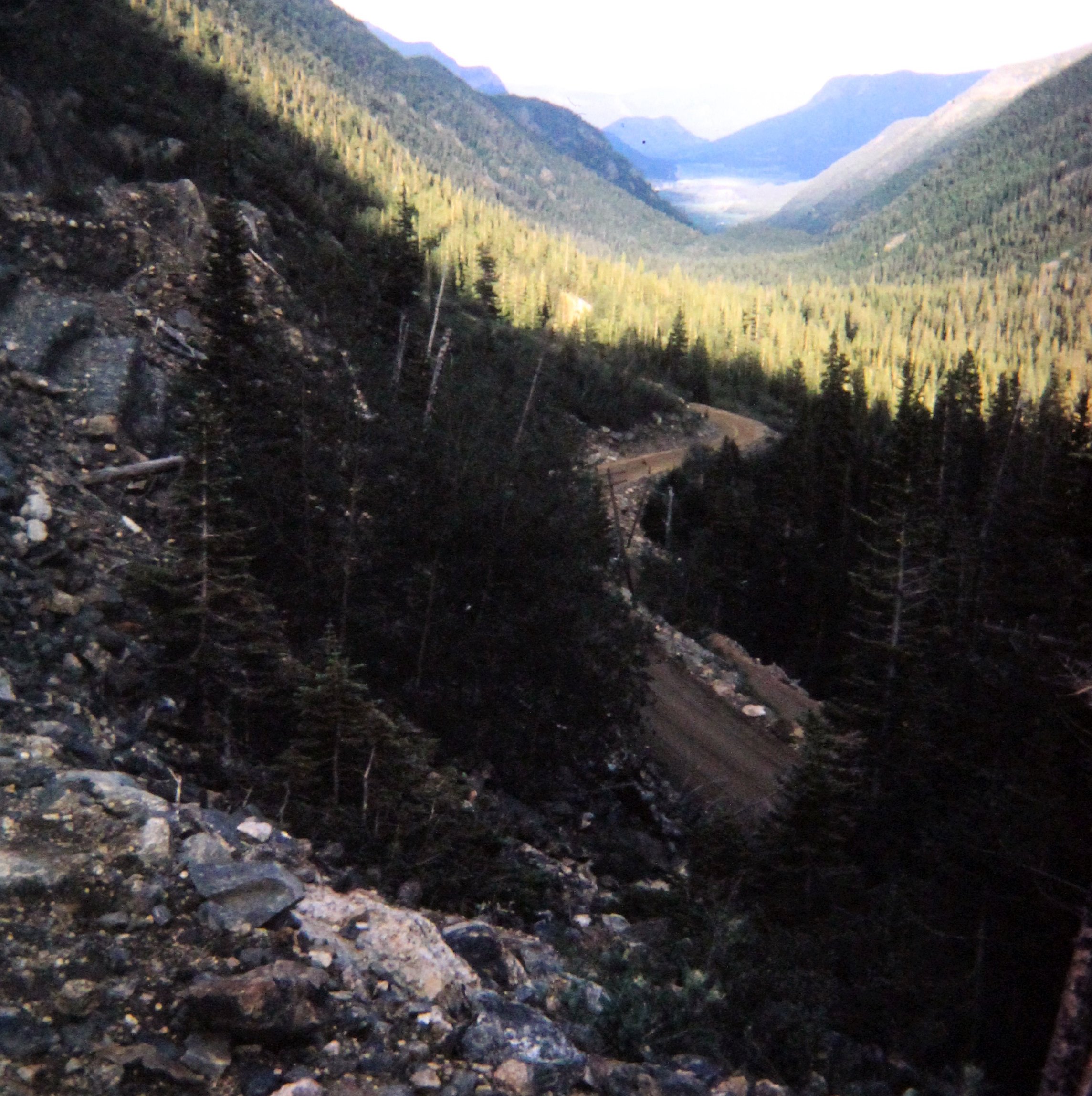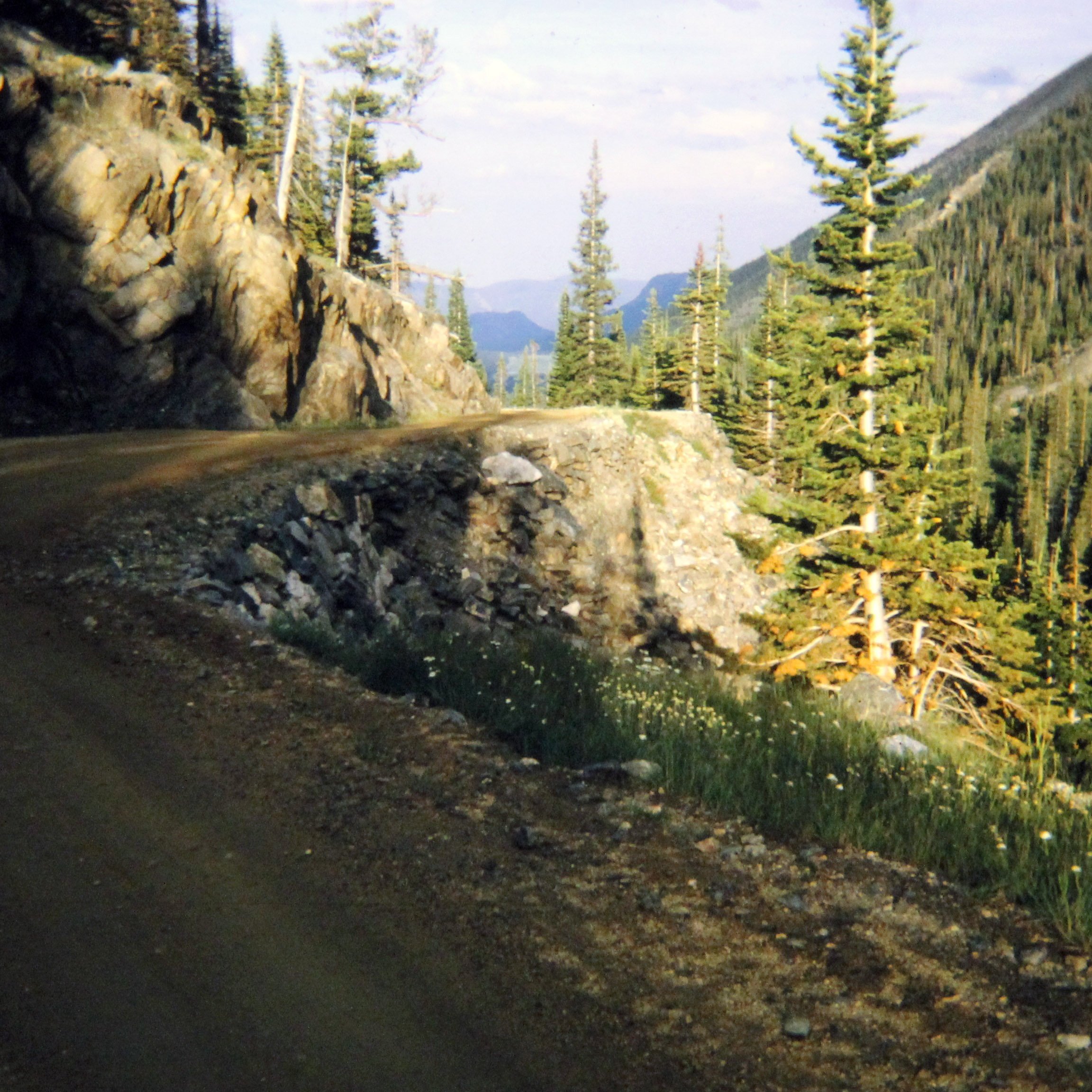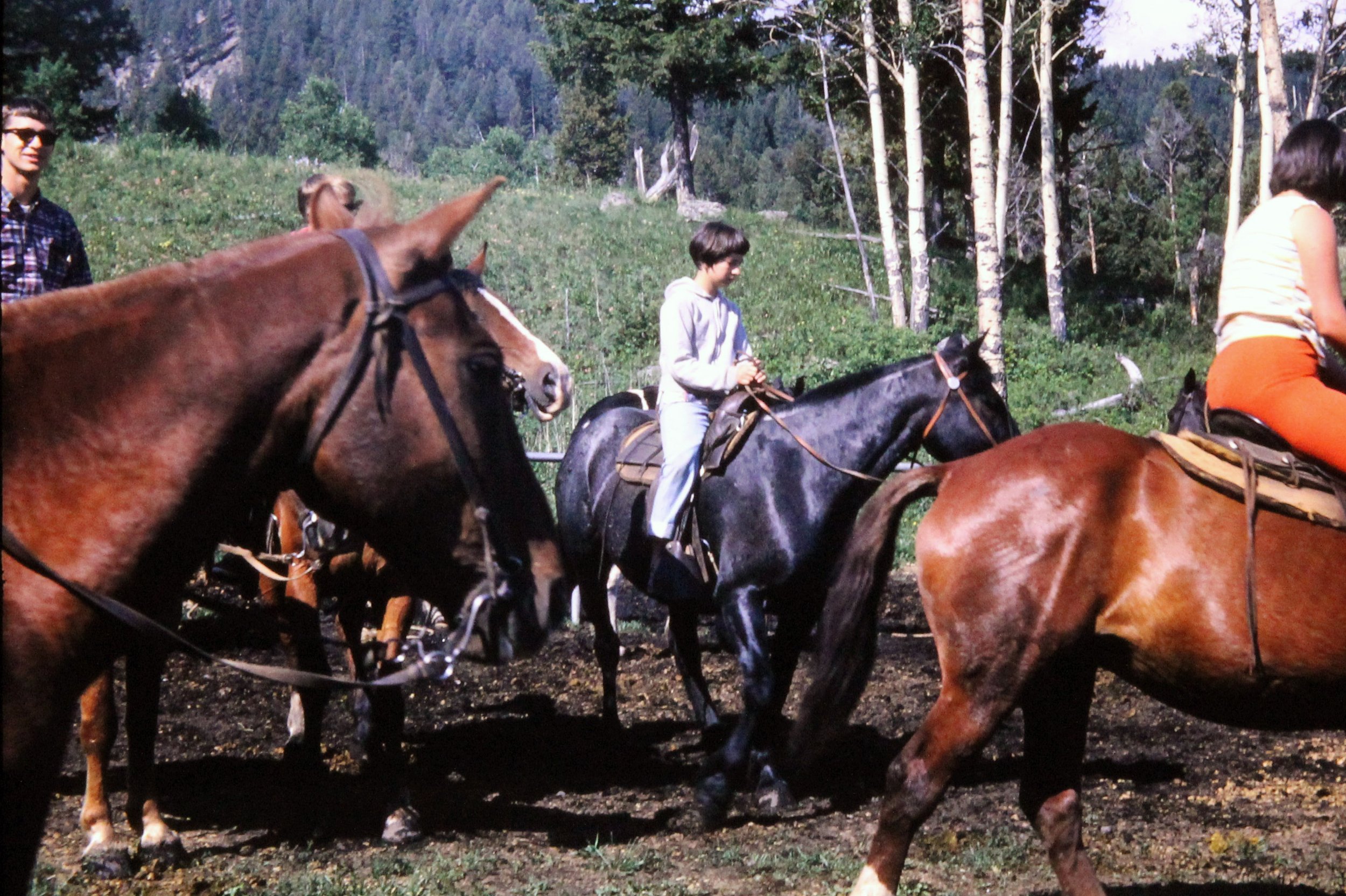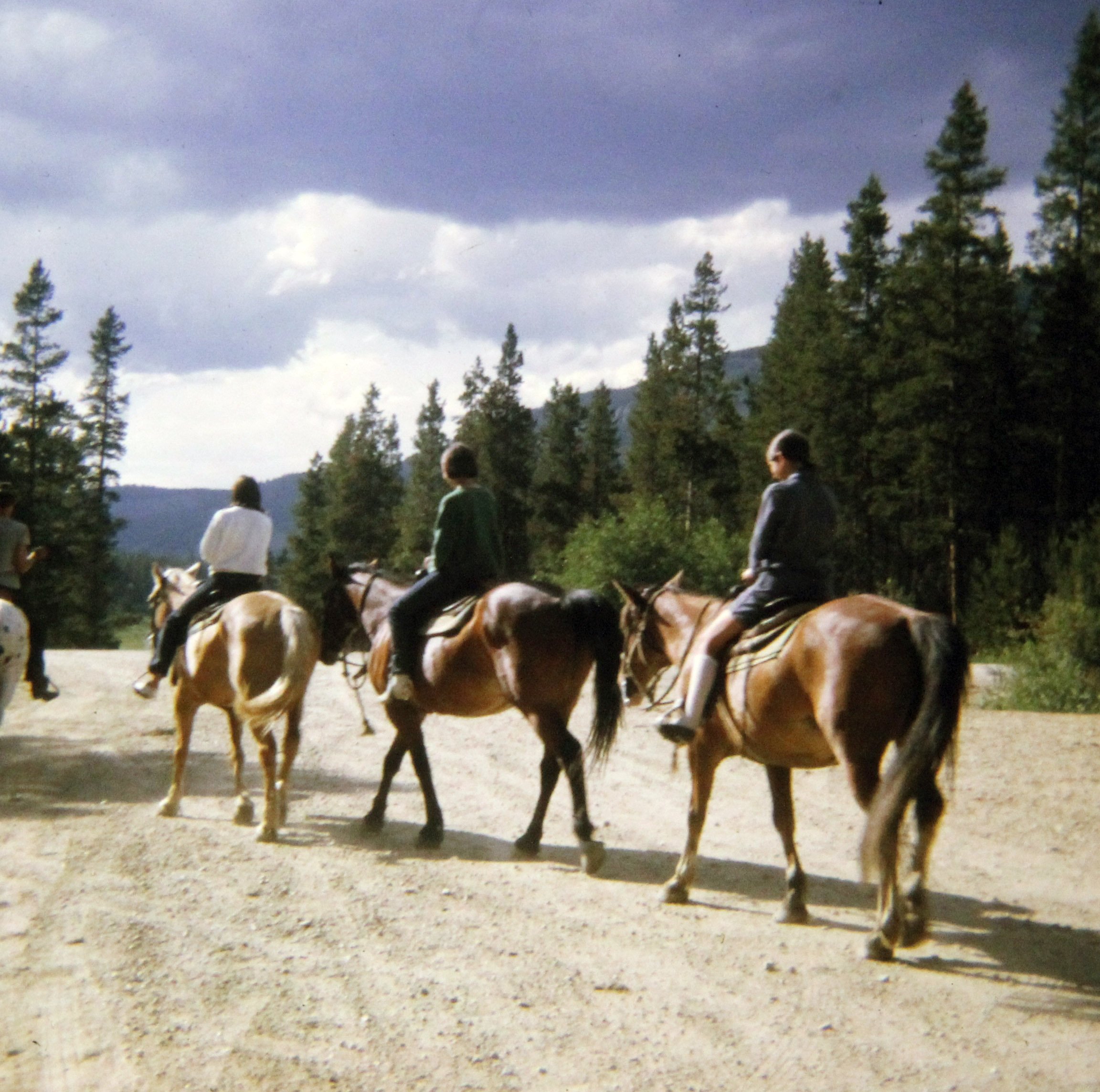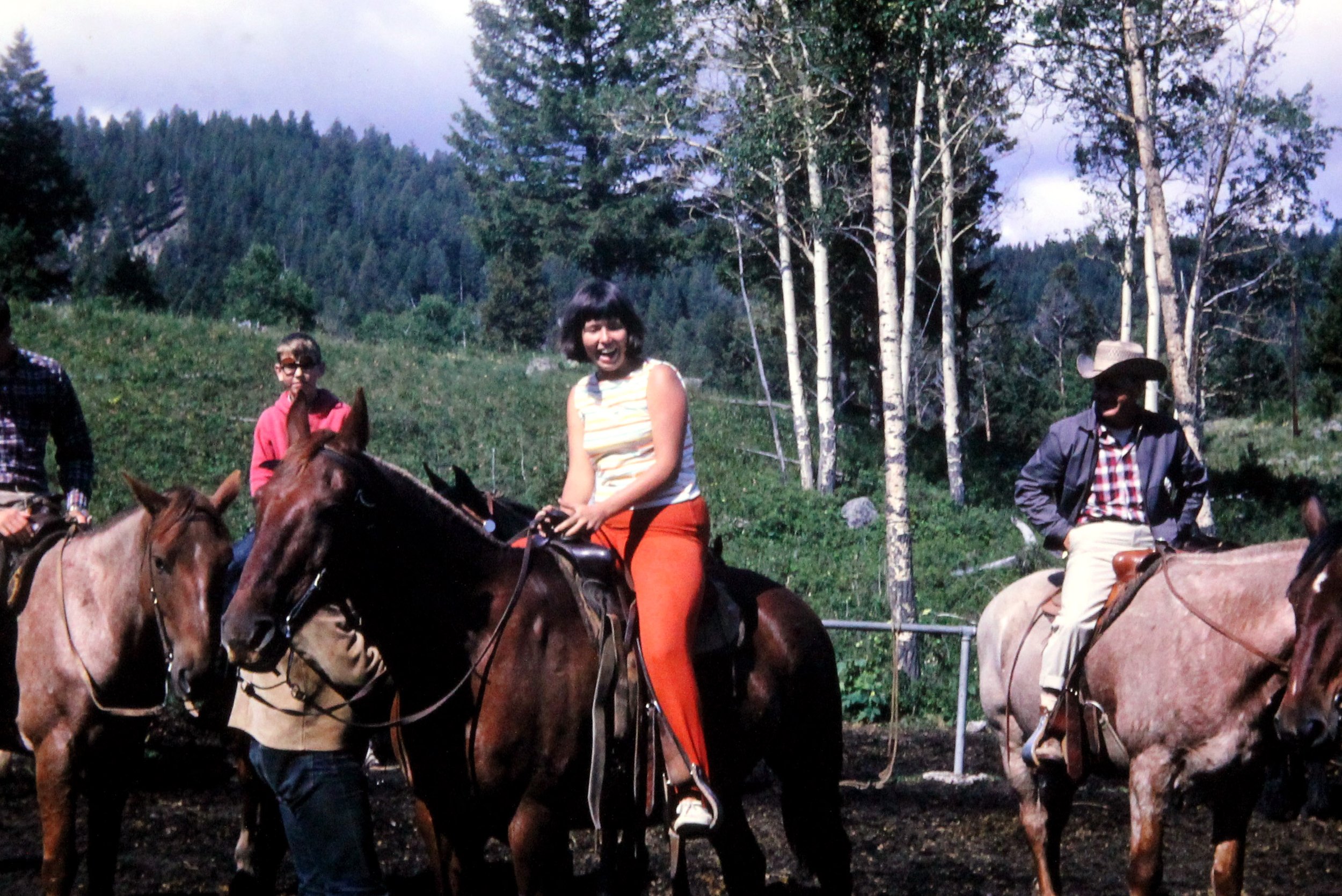Thunder Moon and Water
*All photos in this blog were either taken by my parents or myself.
Leonardo da Vinci called water the vehicle or driving force of nature. Water is very old and constantly renews itself, like the changes of the Moon. Leonardo wrote, “In time and with water, everything changes.”
Change as Noun
Change as Verb
Time: July 13, 1969
Change (Noun)
A set of conditions or circumstances substituted for another to prevent or alleviate monotony, sameness, or uniformity.
It is hot, a mid-nineties July day in Cincinnati, Ohio.
My childhood home
It is time to go the Colorado Rockies. We travel caravan style with two families—college friends of my father. Our neighbor Val comes along this time. Val’s sister gets to babysit our LuLu, a blonde cocker spaniel born in 1960.
(Most of the time LuLu comes along. She loved to hike)
I pick up reading my mom’s journal. My mom makes her entries by stops.
“4th stop – for ice. 75¢ for 25 lbs. in Junction City, Kansas,” scribbles my mom. We also got gas”.
“5th stop,” she bears her pen down on the letter 5. “Had to replace the filter fuel pump.” She writes, “It cost $1.50” and circles it as if it were a bull’s eye, and she was taking aim at delay.
It was hot. 105 degrees at Junction City where we got ice and gas. Junction City is no Death Valley, but it feels like it today.
I remember our trip through Death Valley National Monument, how my mom laid on a tree, like a goat.
July, two years ago, we were in Death Valley National Monument (It wasn’t a national park until 1994). In 1967 around the 4th of July, it was 123 degrees in Death Valley. We had car problems in that heat too.
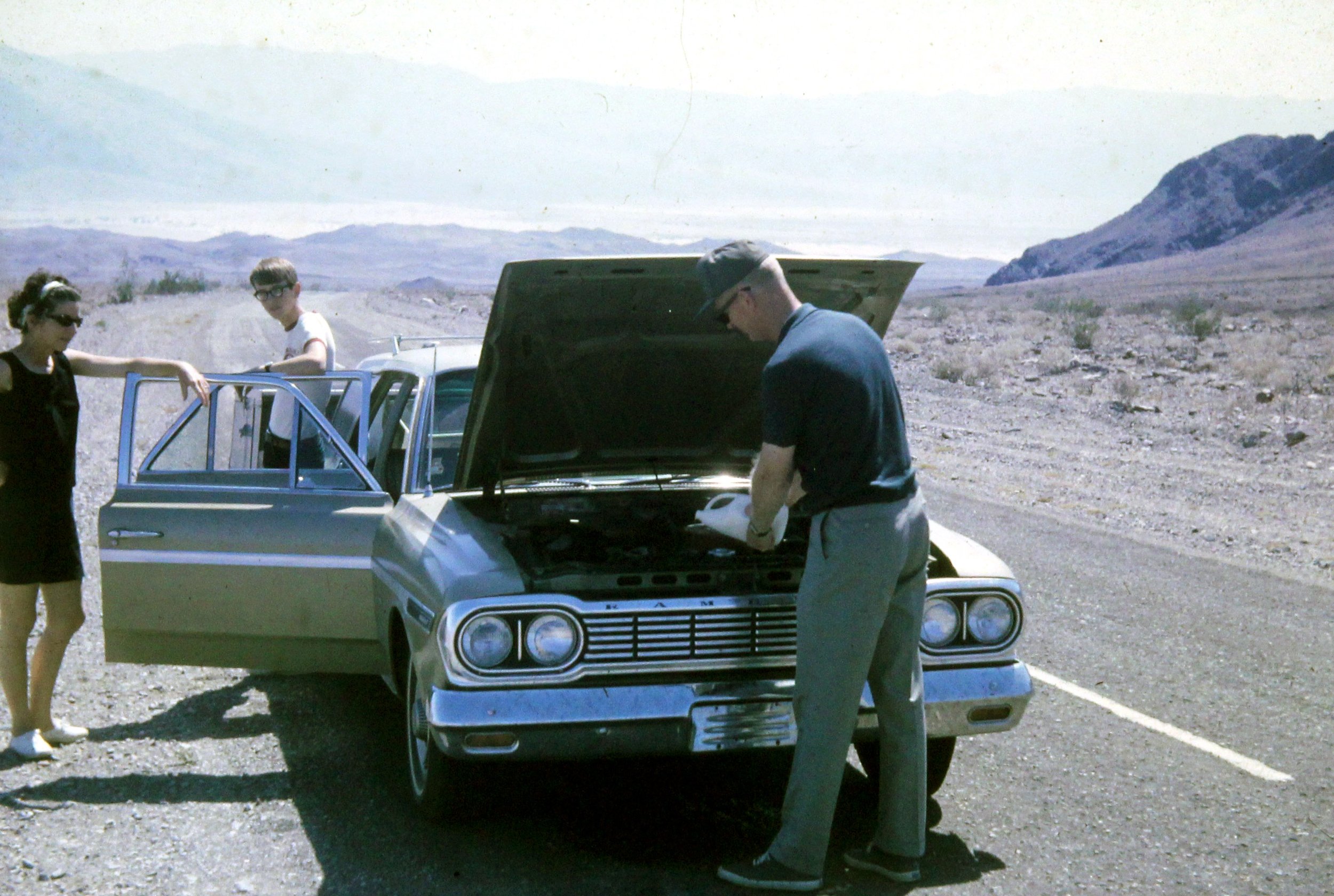
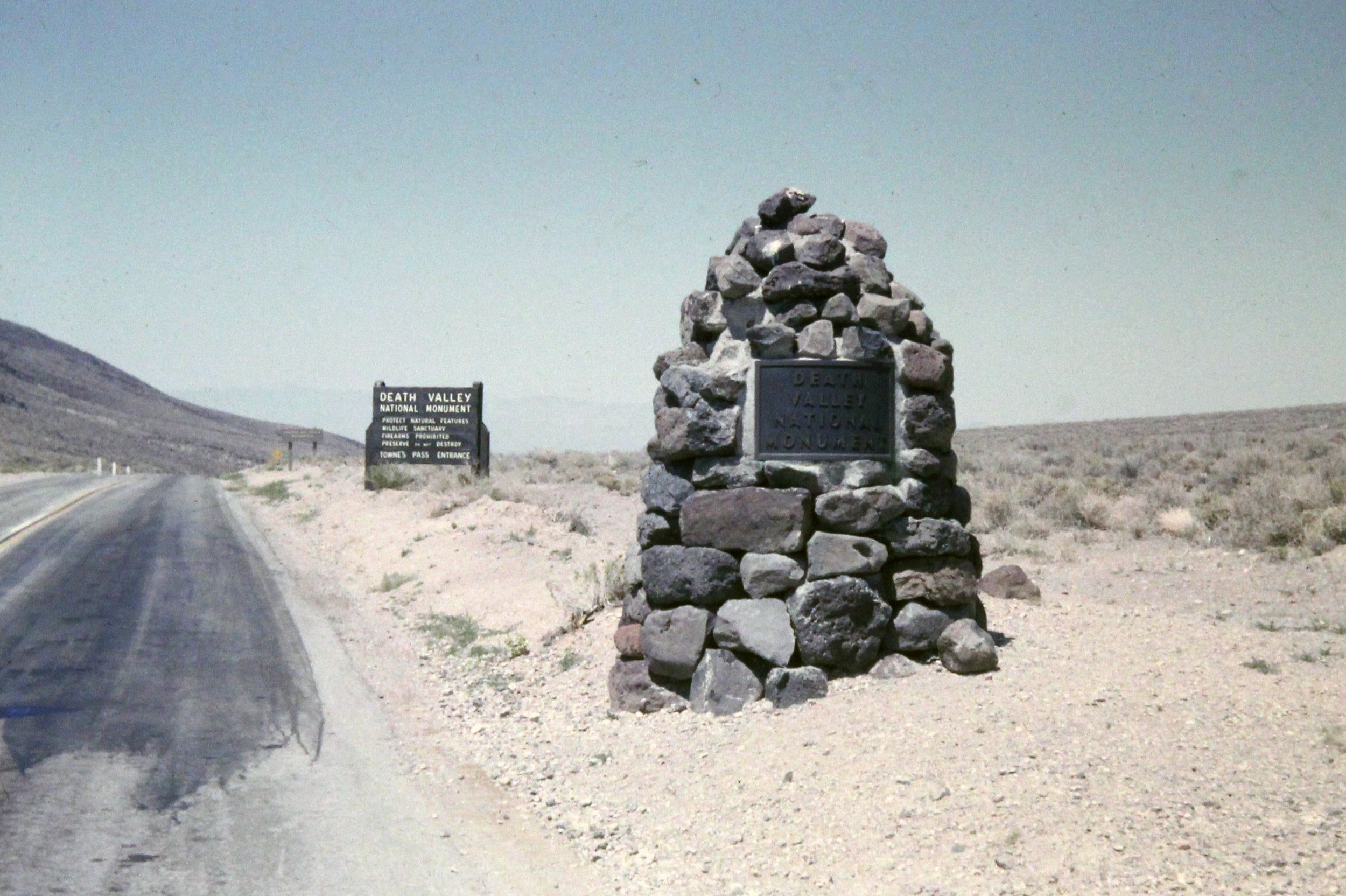
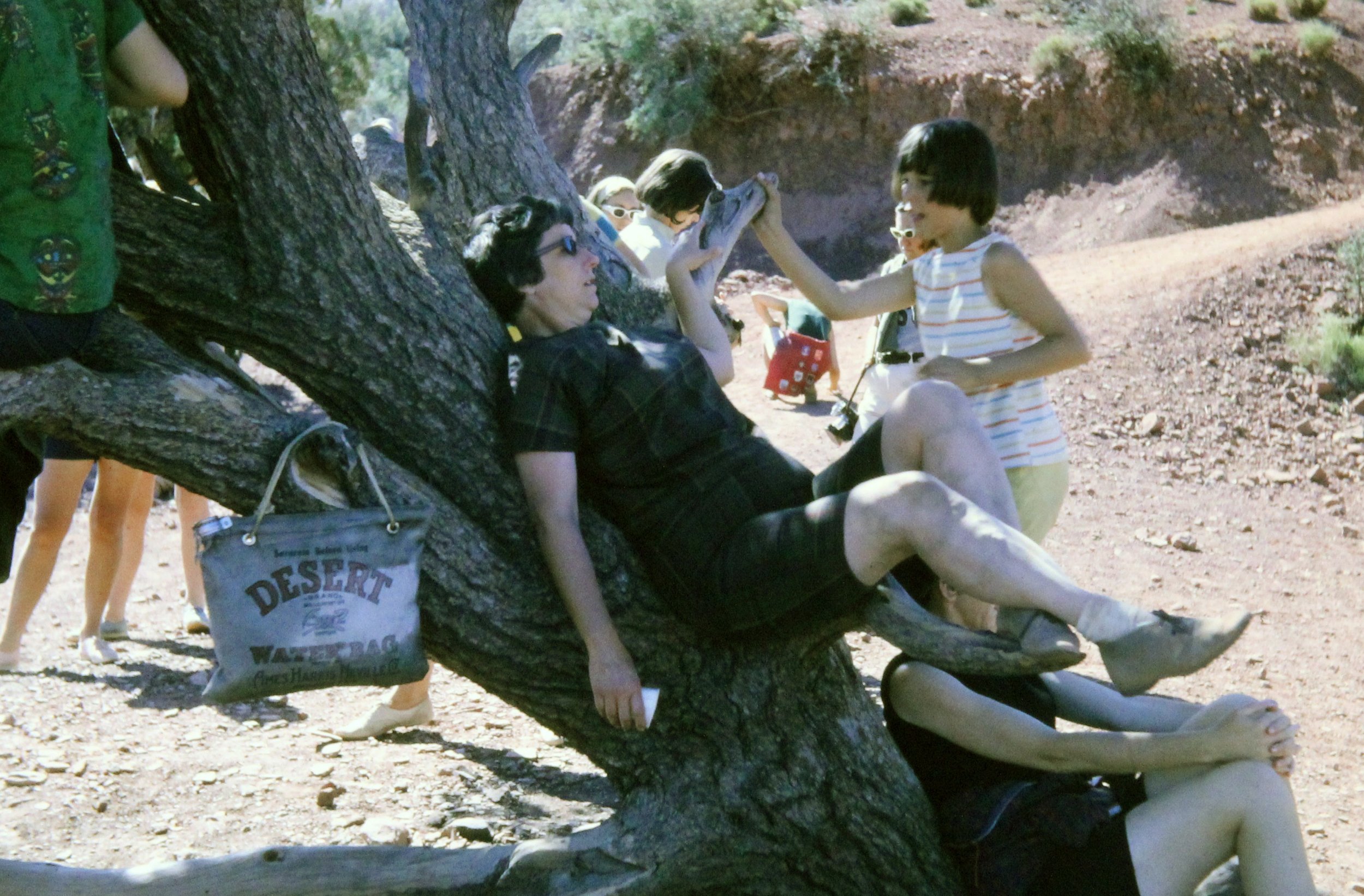
Back in Kansas and on the road, we anticipate our swim in the evening. In about 200 miles we will be at Kansas’ Cedar Bluff State Park (established 1962). We swam on the south shore of the Reservoir. It cost a $1.00 to camp. But we didn’t set up the tent. The wind was too strong.
Next day, we stopped in Denver to get some park information on the Rocky Mountain National Park. Mom writes, “Saw lots of hippies in the Civic Square.” We had seen hippies before, in 1967 in the Haight-Ashbury area of San Francisco after leaving Fisherman’s Wharf and passing though part of the city.
BUT: People hanging out and feeling groovy was a novelty for my parents who were born in the second decade of the 20th century. Hippies reminded my mom of “hobos.” This worried her. During the depression, millions of unemployed men became “hobos,” homeless vagrants who wandered from place to place in search of work. All my mom could see in Denver in 1969 were shirtless, barefoot men. People who were not working and in therefore in need. (There were some hippy gals too, but she had no comment on them.)
Hey-Give Peace a Chance! Mom wouldn’t raise her two fingers.
Peace Signs in 1967
Finally, the “9th stop of the day” was our campsite near Grand Lake under the shadow of Long’s Peak. It was perfect July evening—a cool 50 degrees. I fall asleep thinking about being so close to the headwaters of the Colorado River.
The Colorado River begins as a cold mountain stream in the Rocky Mountains.
July 16, 1969
Dad is always the first one up. He builds the campfire, makes coffee and hot chocolate, and calls us up to see the sunrise. Mom writes, “At 7 am we take a hike. We wanted to see where the water was coming down the mountain. Saw several Aspen trees and many kinds of wildflowers. The place is just beautiful.”
In 1868, Congress authorized John Wesley Powell’s expedition of the Colorado River. The expedition camped on the west side of Grand Lake. At that season Alpine plants were an unbelievably flowery carpet on slopes and ridges. None of the diarist mentions flowers, though. (My mom’s entry clearly augments their dearth of observation.)
After a breakfast of biscuits, grits, eggs, bacon, and jelly, we venture by car over the Old Fall River Road, which was the first automobile route in Rocky Mountain National Park. My mom writes, “The road is very narrow and unpaved and one-way up, but after you travel over the road, you had the feeling you had really been in the Rocky Mountains.”
Compared to the Video recently taken by My Colorado Parks
The Powell group back in 1868 felt the same way about the beauty of the place as did my mom in 1969. The Powell group made it up the Estes Park side to within a short distance of the summit of Long’s Peak. “There Keplinger [member of the Powell party] made the mistake of stopping to look at the view. It almost knocked him off the mountain.” He mentions that there are no flowers --here it must be too high for them. (from Beyond the Hundredth Meridian)
Time may change. The water may flow away. The feeling of wonder has not changed or diminished in 100 years.
Back to camp; it is 8:45 pm. Supper: Chow Mein (from a can) by the campfire. At 10 pm, my sister and I take a bath in the mountain stream. My mother comments wryly, “the water a little on the cool side—have plenty of running water but unheated.”
Change (Verb)
Horse Riding. Of a horse: the action or an act of turning to left or right when directed by a rider, the action of changing hands. Also (now esp. in Dressage): the action or an act of changing legs, so as to lead with the opposite leg.
Next day, July 17, 1969
We love it here so much we decide to stay another day. In the morning, I hear dad chopping wood. Breakfast is coming, I think.
We go horse riding.
We’ve directed the horses, turned them to the left. Changing our hands and legs. We’re off.
So is the Colorado River. It rides the earth. Changing our world in every direction.
Change (verb)
To change one's feet: to put on different shoes or boots.
Autumn 2021
Fifty-something years later… We put on our hiking boots. Instead of being beside a narrow little stream running into Grand Lake, we are in a little narrow pathway once made by water. Time has changed things.
We are walking way south of the whole drainage basin; I have flowed in time over the waters of the Colorado all the way from Grand Lake and the tributary springs and creeks and runoff gulches that fed the way all the way to modern-day Moab.
Mu husband and I in Narrow Path, Utah
We are in Utah’s Canyonland National Park. From where we sit and picnic, I see the Colorado River flow to meet one of its main tributaries, the Green River, join at the Confluence (The Confluence is a sacred spot to some Native Americans.)
The river cuts down and through rock. This is change over time of the waters on a riverbed. Change is also the shift of the bed itself, like a horse rider changing directions with the rock of its hands and stones of its feet.
We hike and picnic and take in the vision of the Colorado River.
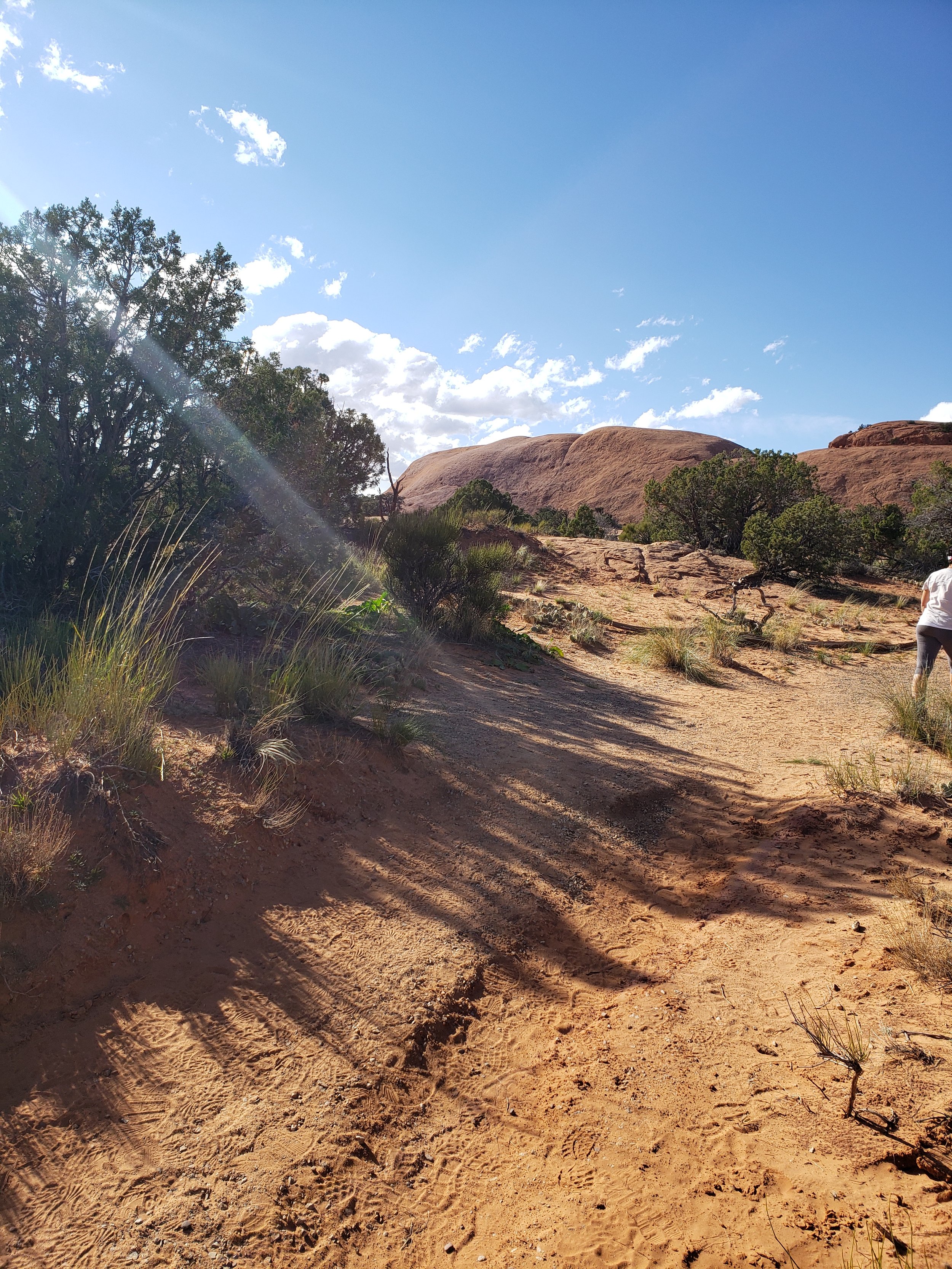
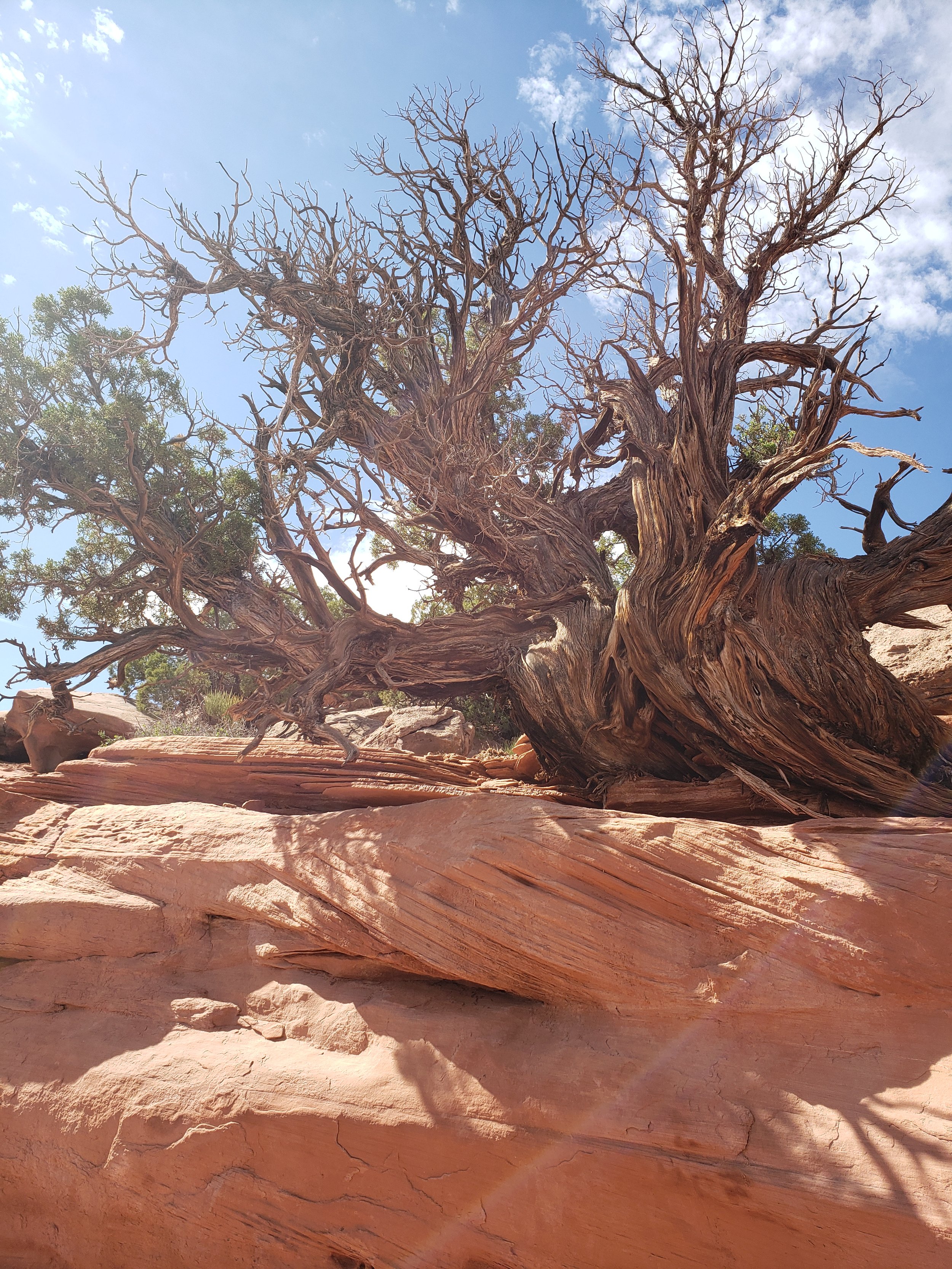
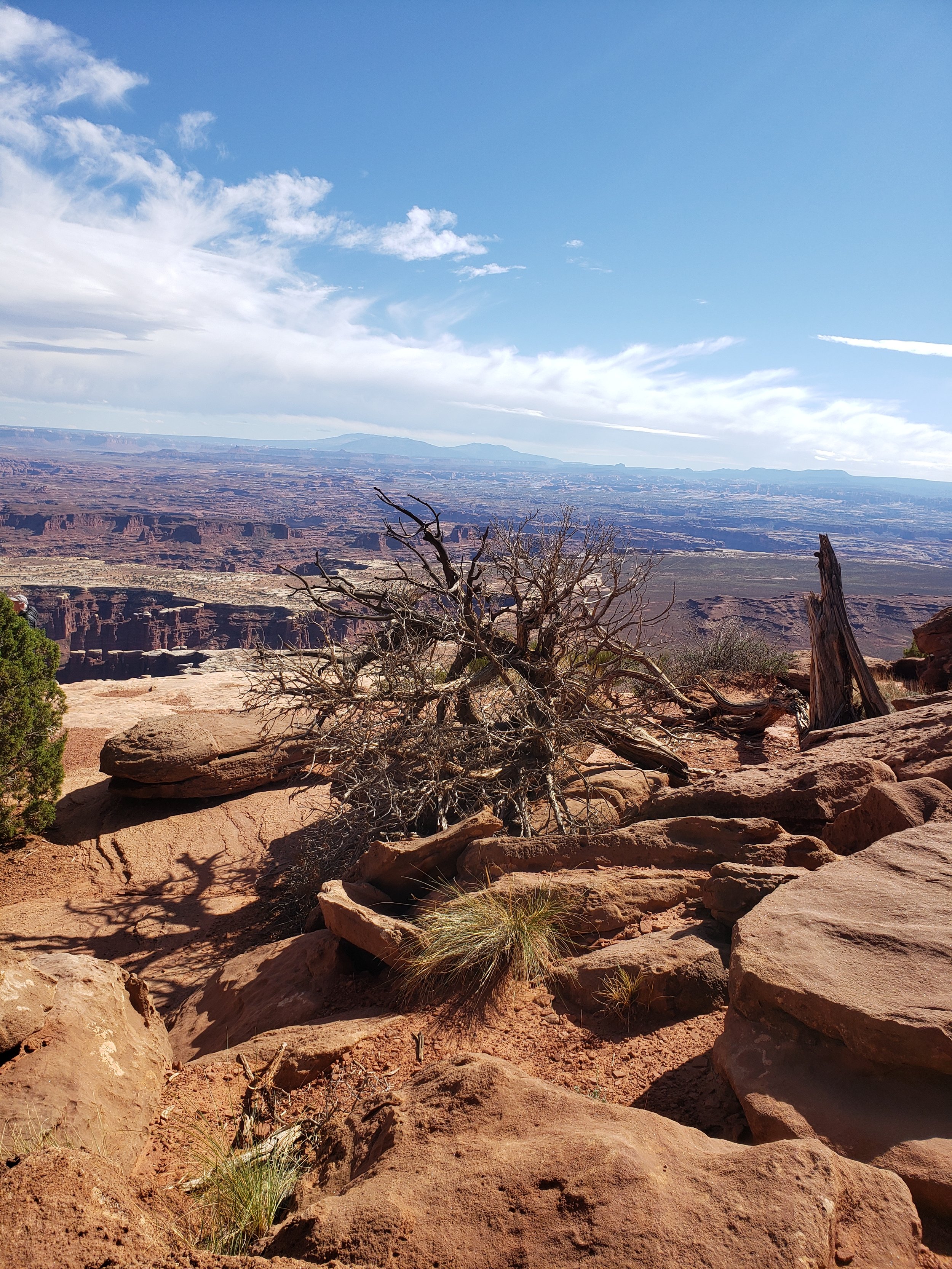
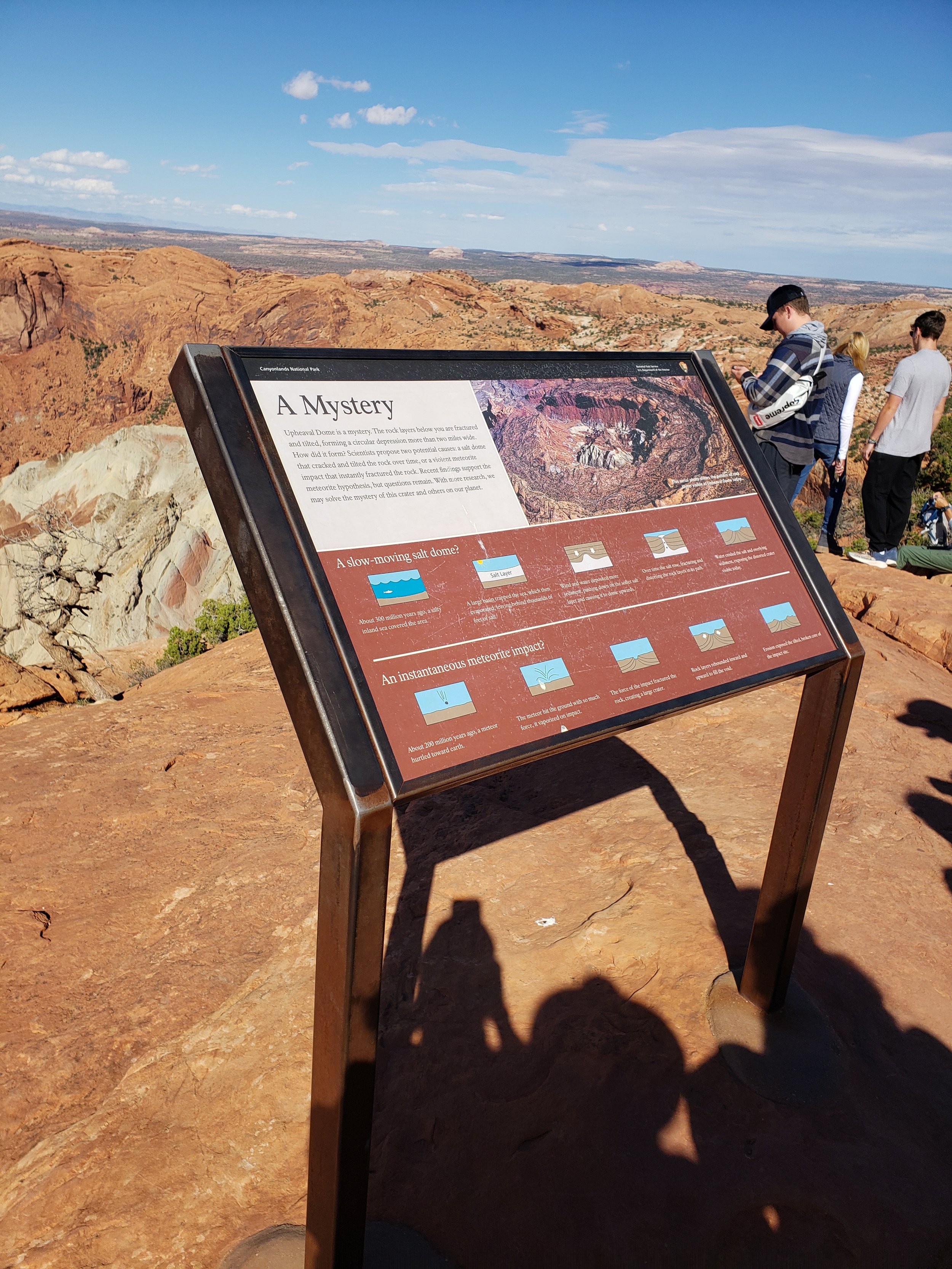
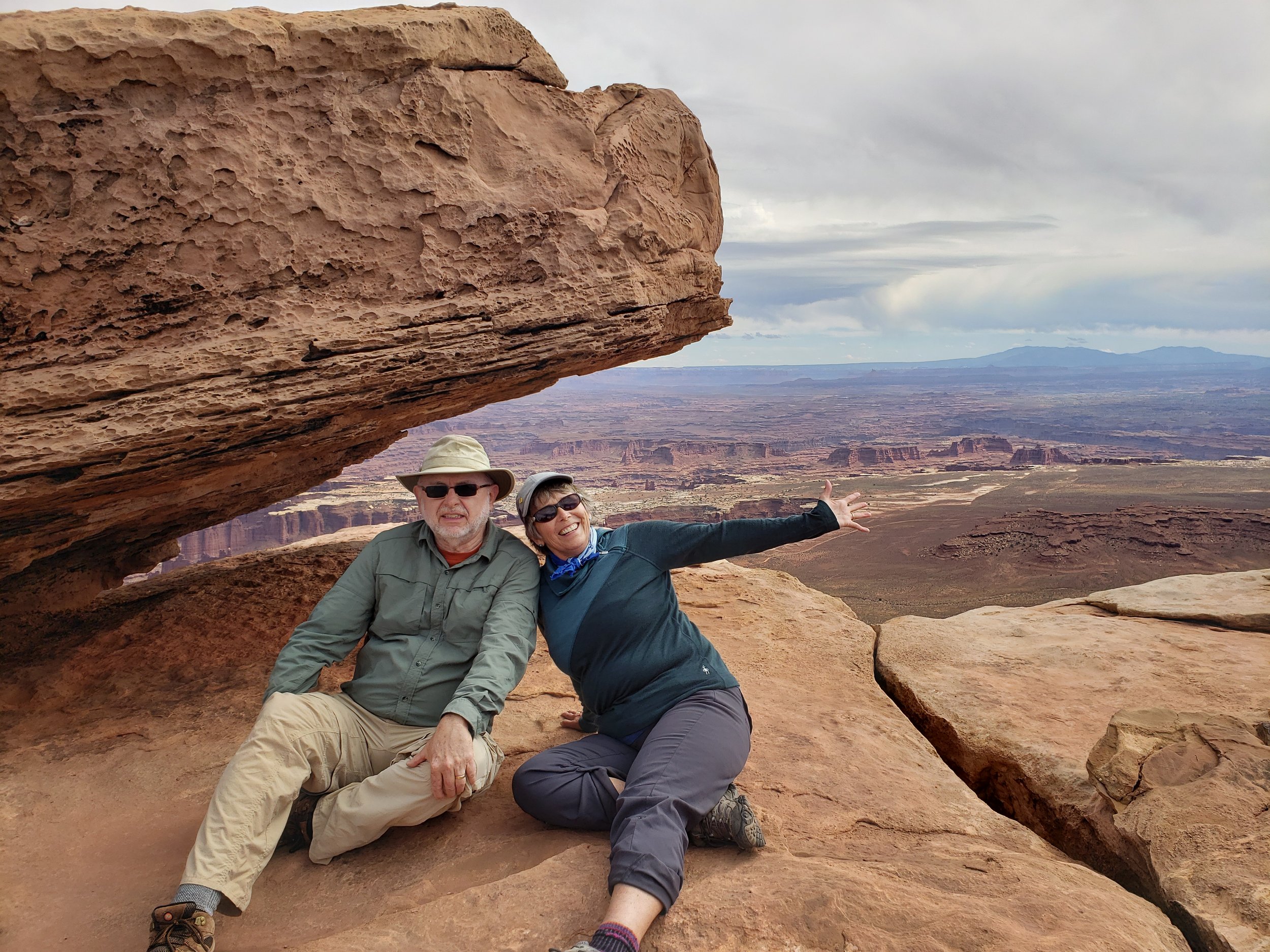
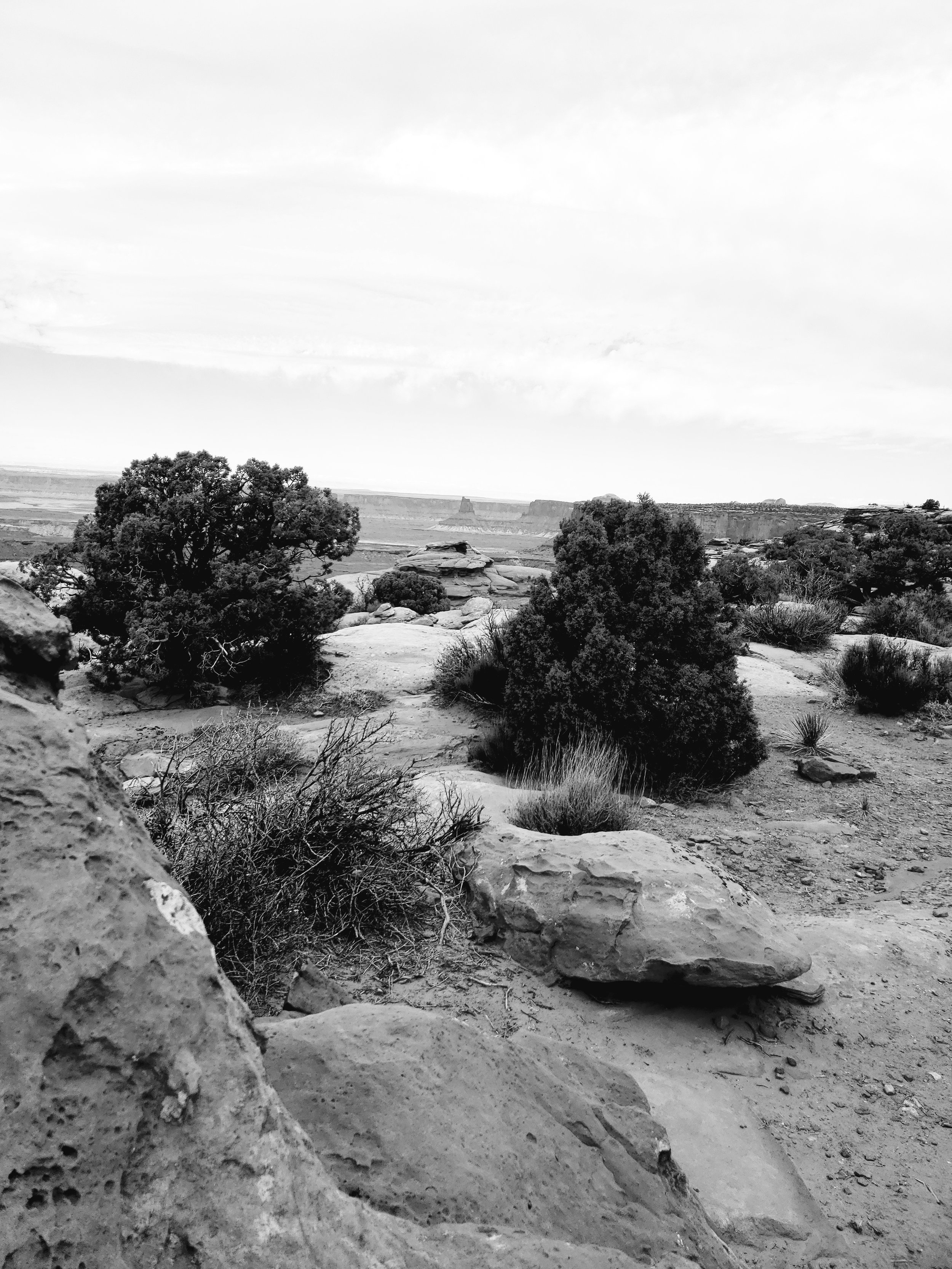
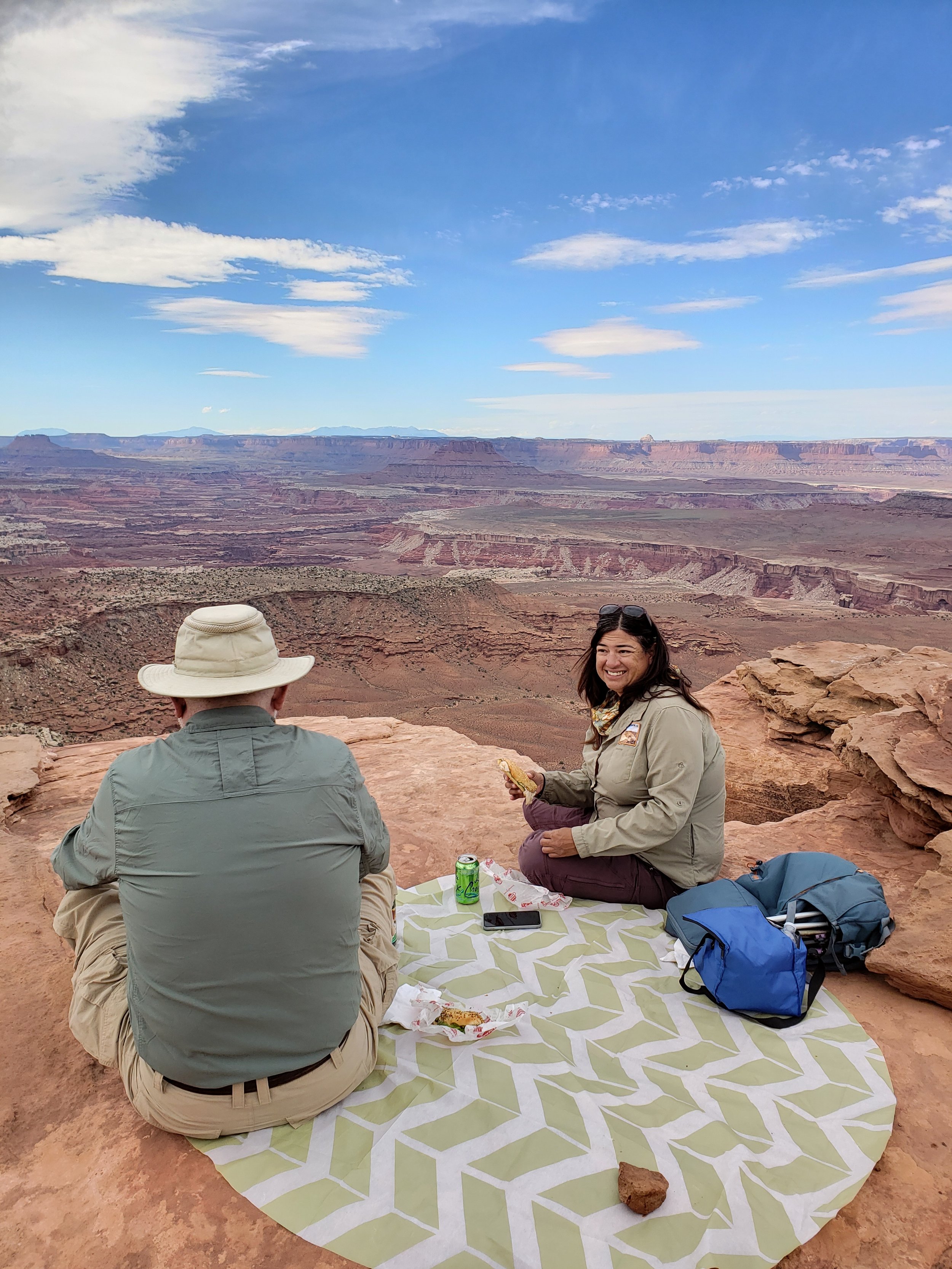
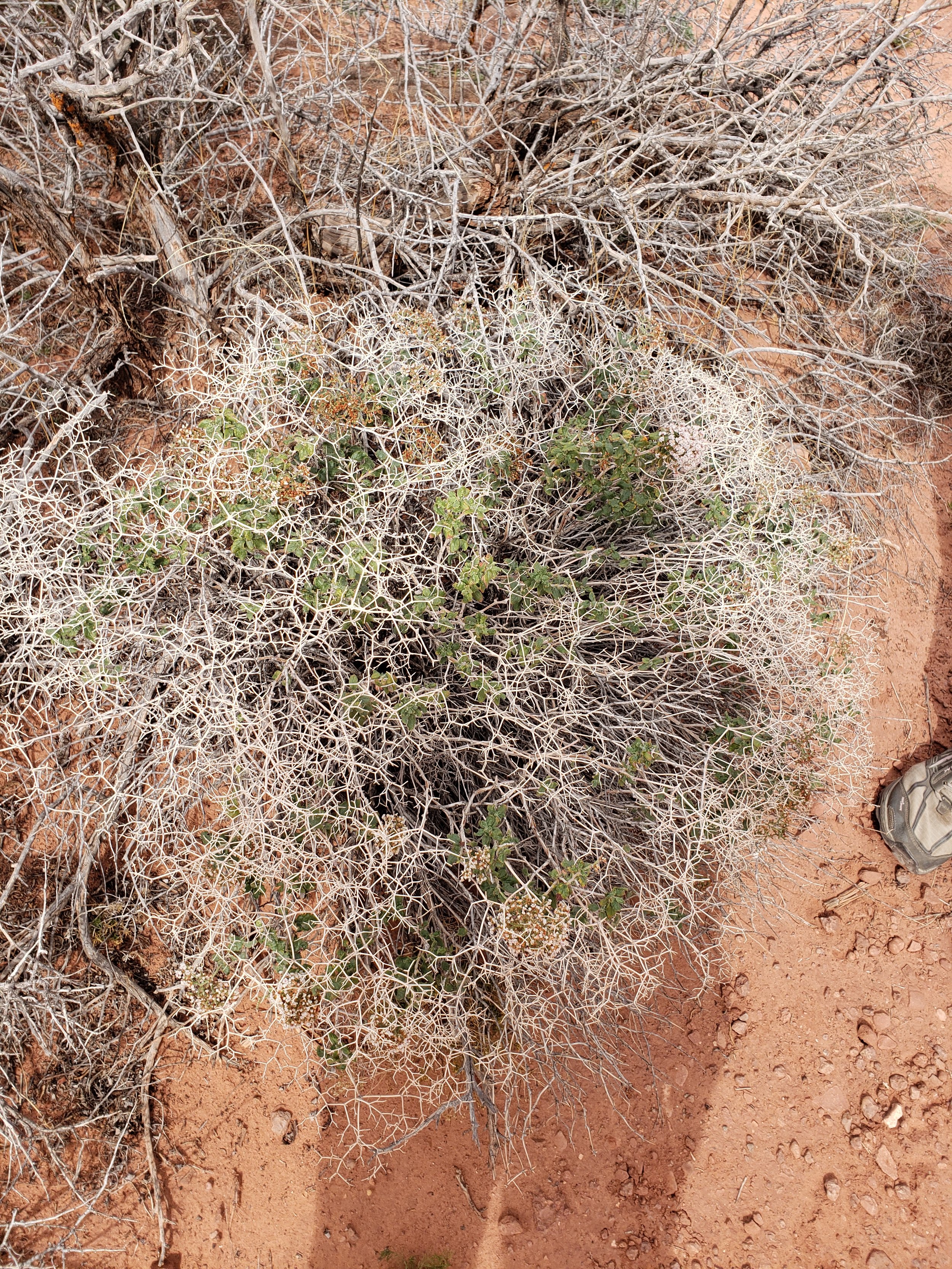
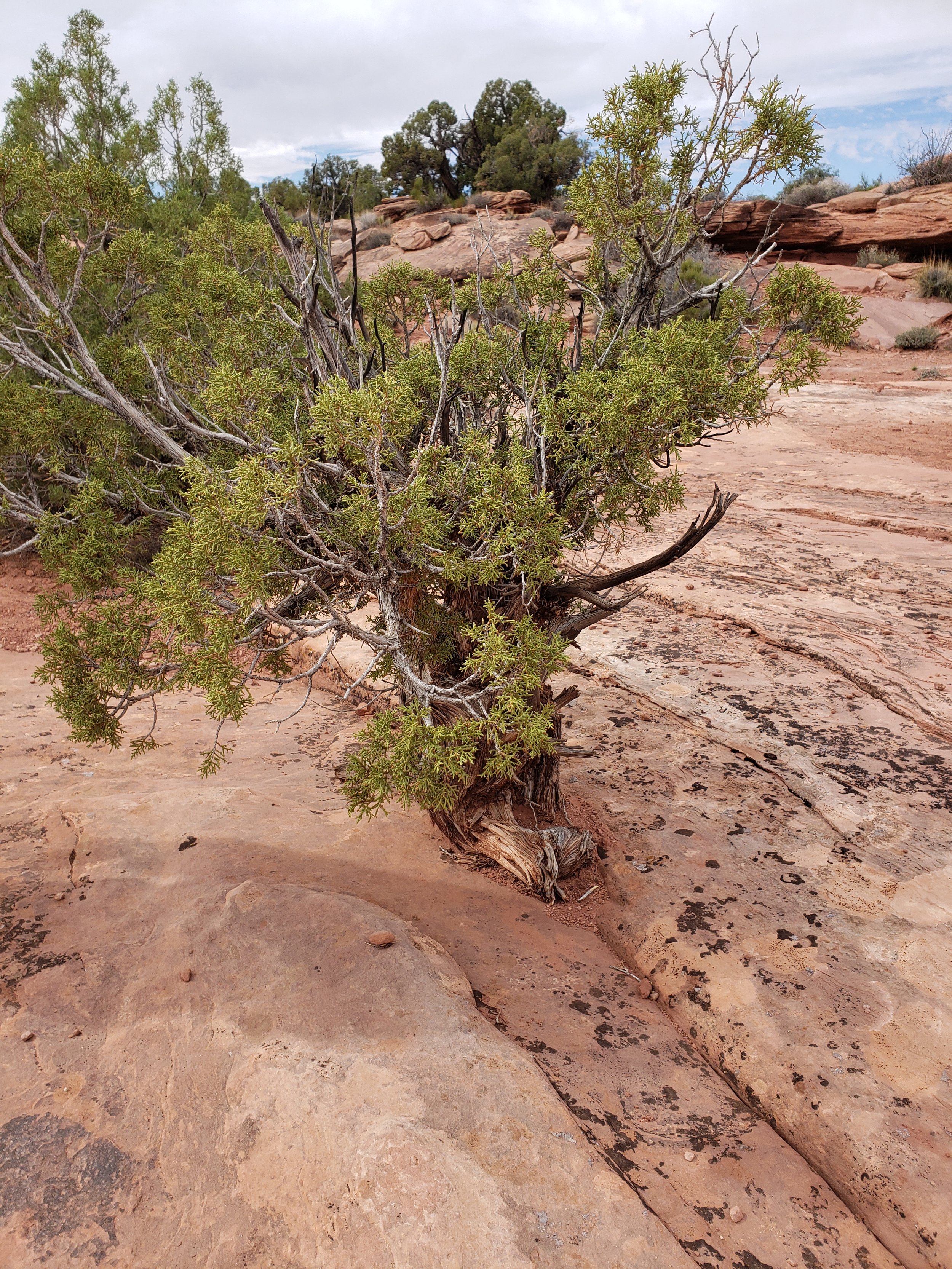
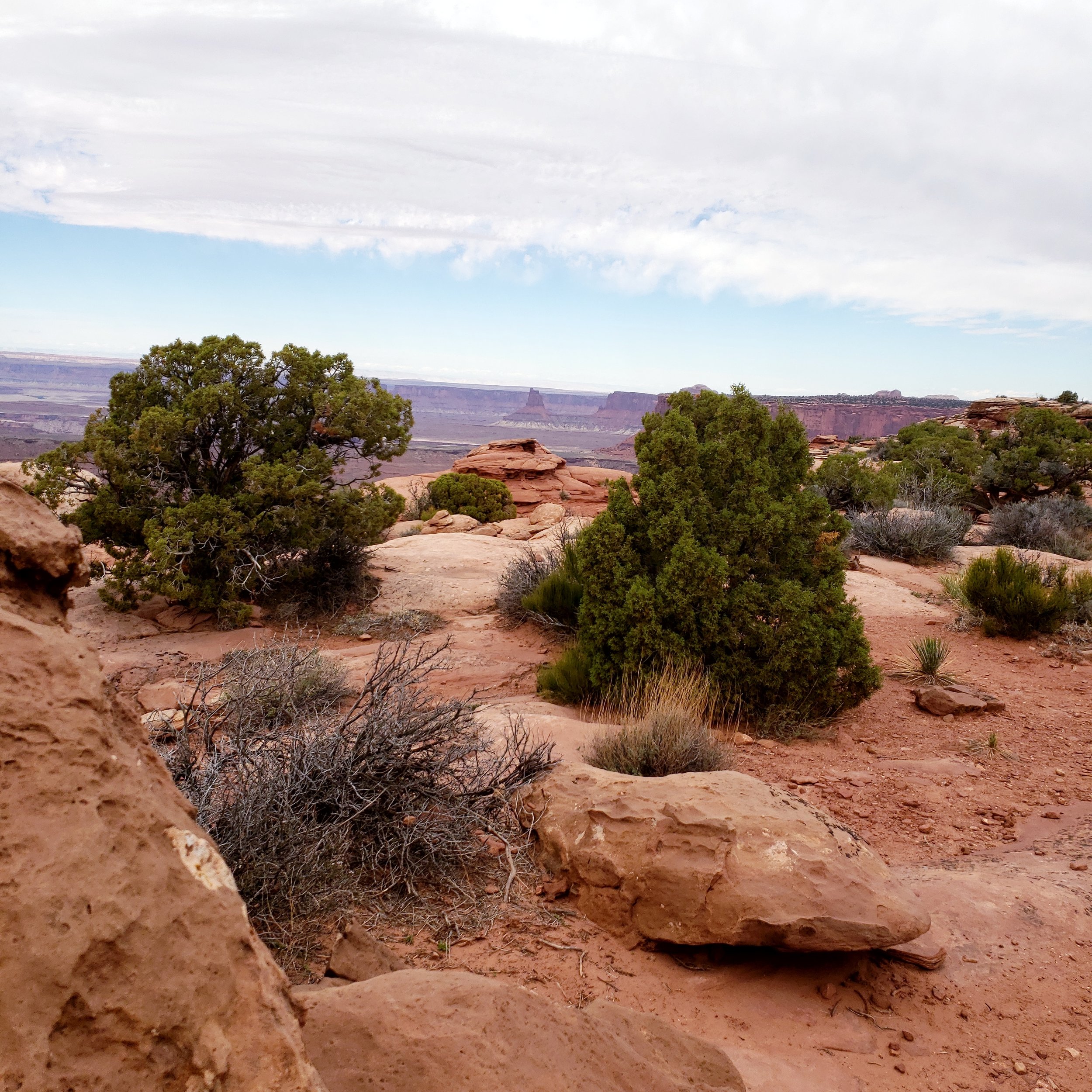
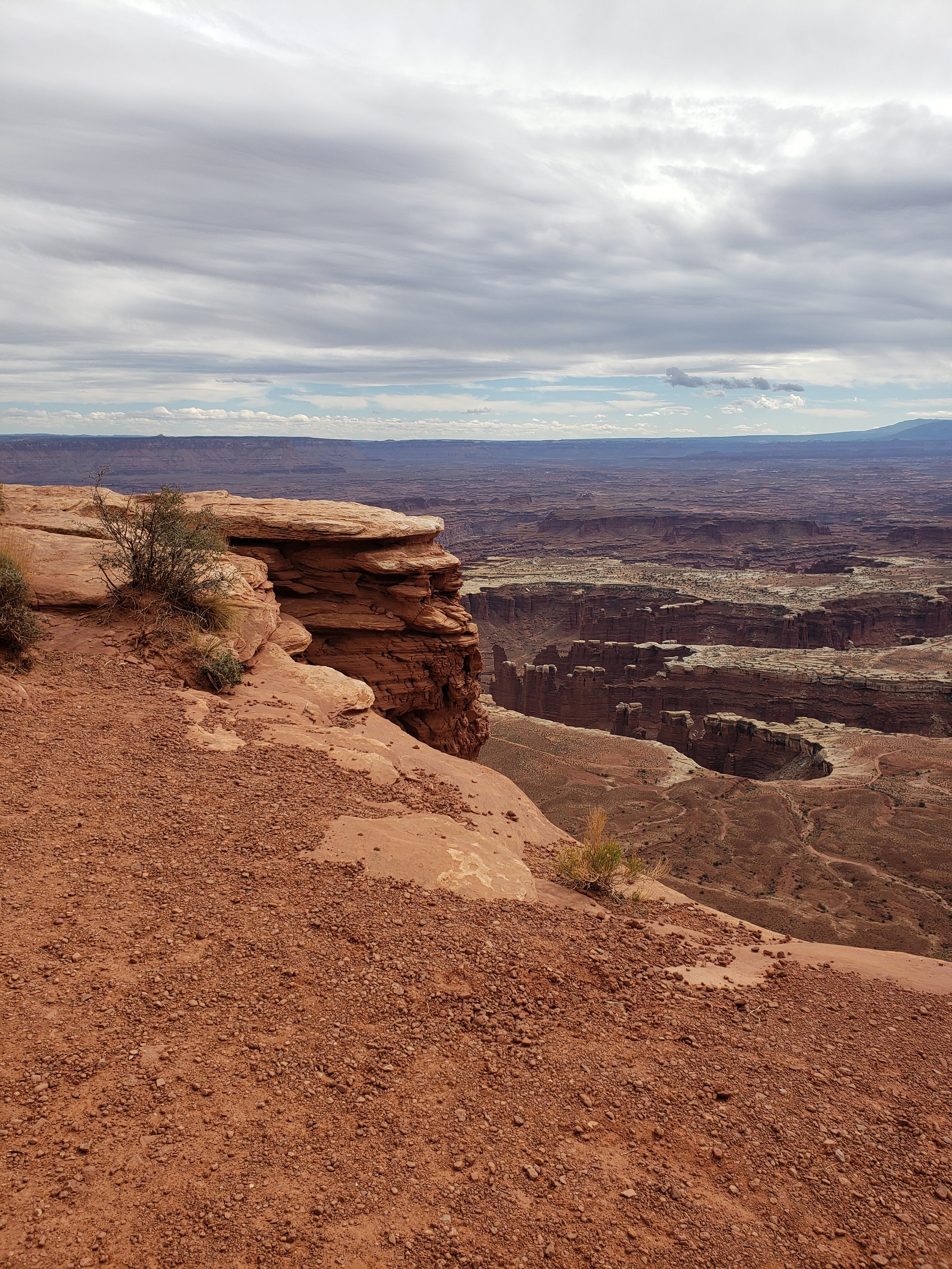
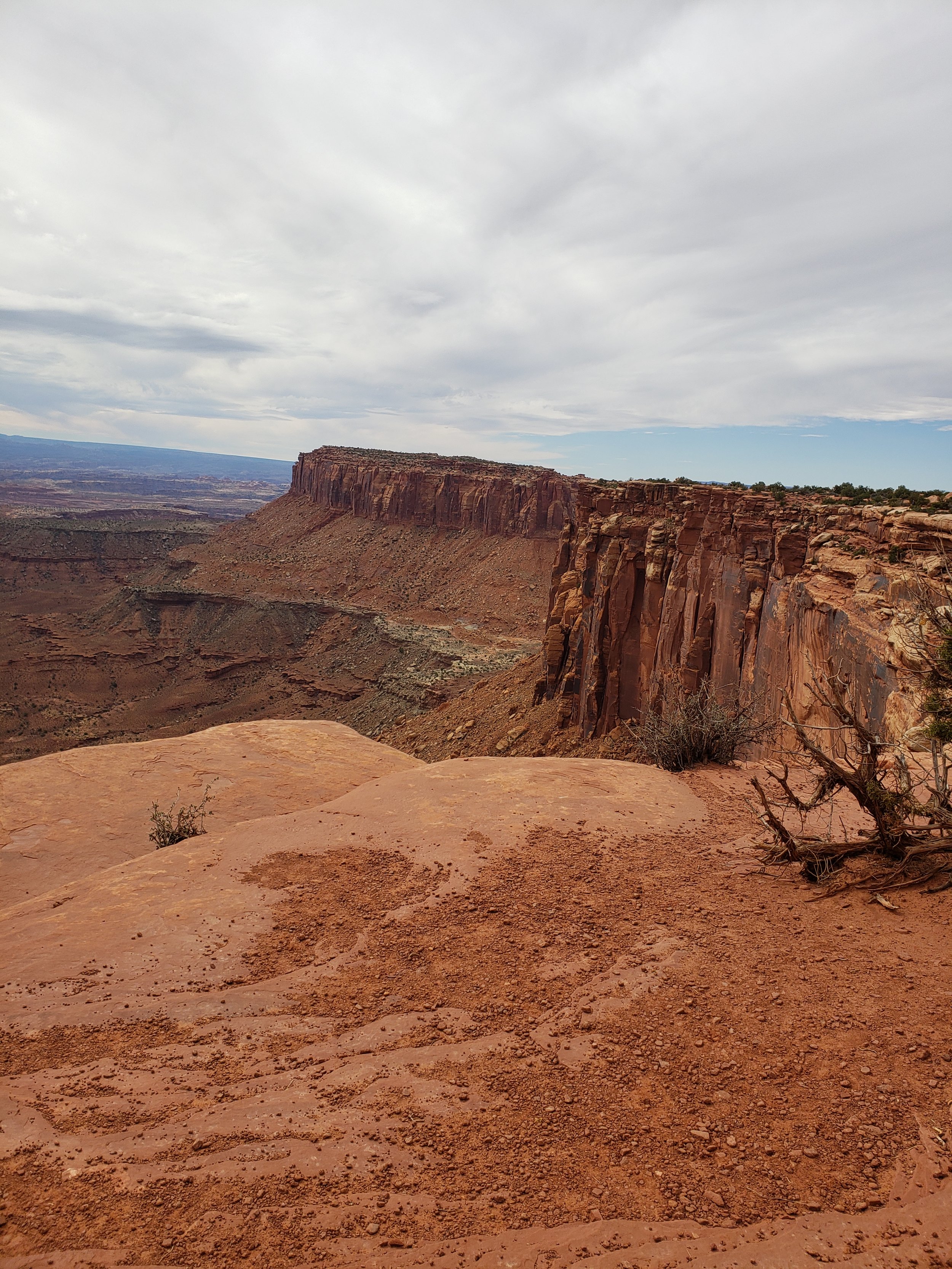
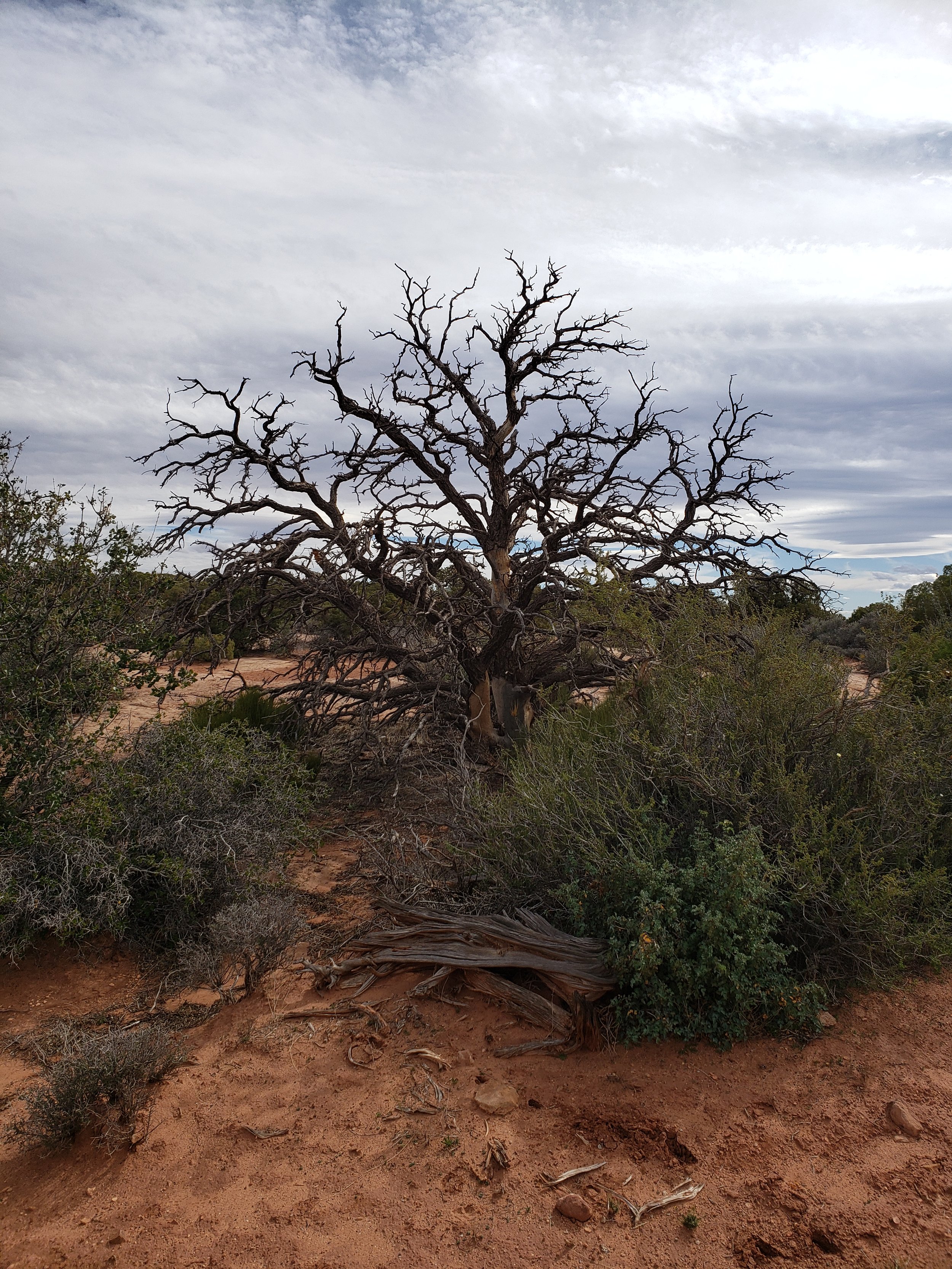
Change (Noun)
Something that may be substituted for another thing of the same type.
It’s a big river, not the little stream of my first encounter with the Colorado River. The Colorado River in Utah may be substituted for a flashy waterfall, which could be a trickle. Time changes the flow of water. The flow of water changes time—time of flowers, time of mountain, time of canyon, and time of desert
Change (Verb)
To undergo alteration; to become different or modified.
Winter, January 18, 2022
Hannah Arndt, political philosopher, author, and Holocaust survivor wrote in her The Gap Between Past and Future, “I rather believe with Faulkner, ‘The past is never dead, it’s not even past,’ and for the simple reason that the world we live in at any moment is the world of the past….”
If we follow the thinking from Faulkner and Arndt to my post, we could hold that the water at the Confluence in Canyonlands is a monument of world past at Grand Lake, the facts about which we become. This is change.
July 19, 1969
The horse ride over, we head back to camp. We bathe in the mountain stream. Pop some popcorn. Play cards until 10:30 pm. Crawl in tent.
Dad gives a young couple some wood.
Tomorrow we reach Monarch Pass.
July 20, 1969
We’re on Monarch Pass!
Monarch Pass is my Moon Day.
Moon Day commemorates the day when man first walked on the moon on July 20, 1969.
We may have chosen to go to the moon. But as for me, I choose earth.



